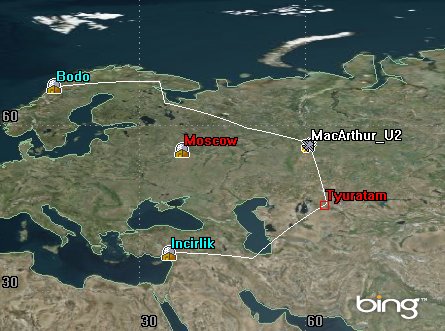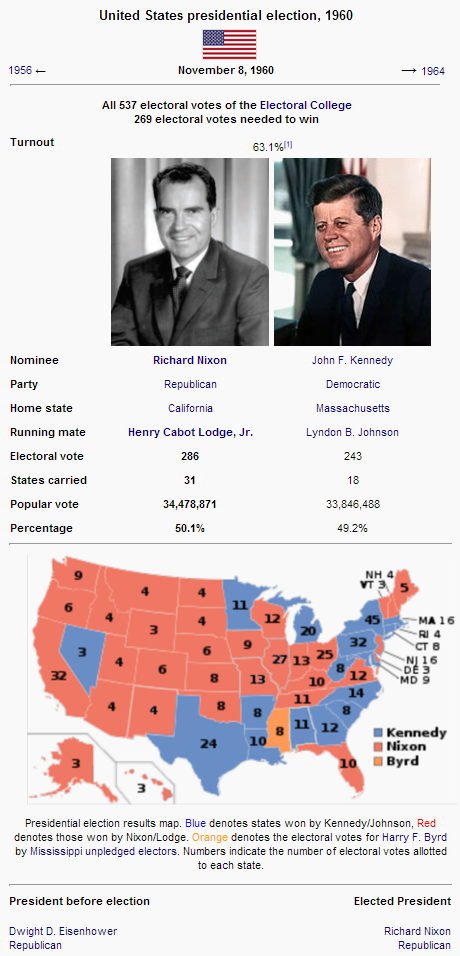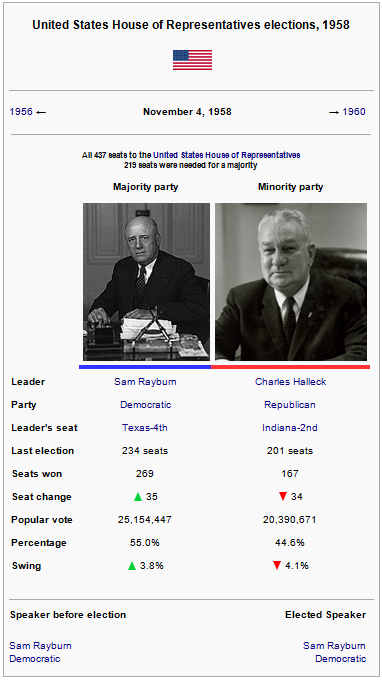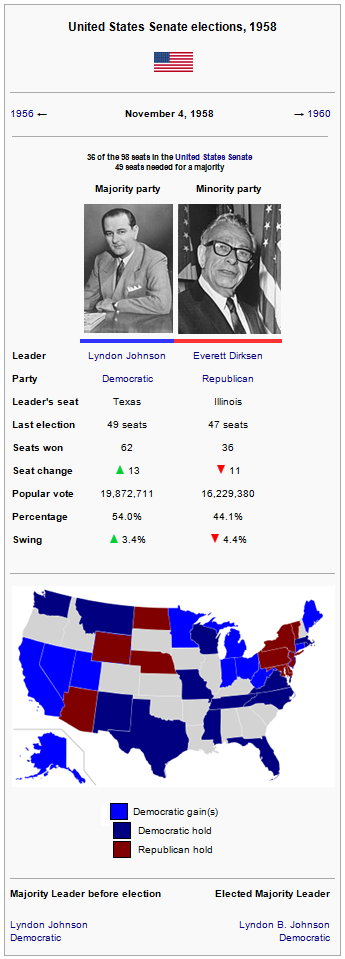fasquardon said:I'm very interested to see what Von Braun will do in the private sector. All that I have read on the man is not only was he a good rocket scientist, but he was a much, much better political player. Which is why he got his rockets built, even considering all the ups and downs his career experienced. So I fully expect that Von Braun will be a giant of TTL's space program too, and looking forward to reading how you have him adapt to his circumstances Nixonshead.
I fully agree. For me the stand-out feature of both von Braun and Korolev was their superb man management and political skills. Von Braun is down, but not out.
Shevek23 said:I've said it elsewhere but it is particularly appropriate here and now: I think it was entirely appropriate for McNamara to nix the X-20 as an Air Force project since the Air Force (nor any other military service) has never satisfactorily explained just what the military mission of a reentry hypersonic spaceplane would be--and all their attempts quickly show as something that could be better done with other spacecraft. But it's a damn shame NASA did not pick up the project instead, since I think the world could use some action about actually experimenting with such spaceplanes to have actual data, instead of endless paper projects.Advancing the state of knowledge of the unexplored boundaries of aeronautics and astronautics is exactly what NASA is supposed to do, darn it!

Very true, the X-20 IOTL did become a capability looking for a mission, as did its follow-on MOL. But in the period we’ve covered so far, both IOTL and ITTL, the Air Force have their hearts set on it, and as a logical progression from the X-15 you can kind of see their point - unless your name is Max Faget, of course
Shevek23 said:OTL in the wake of Sputnik (or was it before?) the Eisenhower administration adopted the stance that space exploration was properly the task of a civil agency (eventually NASA) and founded NASA for that purpose; after that it was necessary for DoD agencies to explain how their space activities had a military mission or butt out. Here on the other hand it isn't clear that that decision has ever been spelled out in the USA (it never was in the USSR) and NASA does not exist.
In fact from everything I’ve read the creation of NASA was not down to Eisenhower, but rather was an initiative from within Congress (with heavyweight support from Senate Majority leader LBJ) in response to the Sputnik panic and the perception that the Navy were dropping the ball. ITTL, that perception doesn’t exist, so there isn’t the same “Something must be done: This is something, therefore it must be done” response from within Congress, so no NASA.
Shevek23 said:I'm on the fence about Dyna-Soar's merits, especially in the TTL context (and OTL) of it being explicitly a military project. I'm obviously unaware of just what the spaceplane could do for the Air Force that couldn't be done by several other systems
I don’t think it’s a case of you being unaware, but rather that the merits were never made clear! The original requirement was for high-speed reconnaissance, but that was picked up by the Blackbird (as far as that aircraft ever fulfilled an operational need), then spysats. Partly I think it was a case of progressing from X-15 and cultural aspects within the Air Force, as discussed above, but I (and Ike, apparently) suspect a lot of it came down to the Military-Industrial Complex wanting a shiney new development project - much as they did over a decade later with the Shuttle. Fact is though, technically justified or not, the decisions outlined in the previous post are fully consistent with what actually happened IOTL, with only a few minor things changed!
Shevek23 said:One advantage, or anyway possibility of skip-glide is that with each skip it is possible to change the inclination of the suborbital path, by banking on the aerodynamic glides. But how is this better than simply launching into the right orbit in the first place?
NathanKell said:As to advantages--skip reentries for plane changes don't end up working out, really; you lose as much orbital velocity as you save by not performing an orbital plane change, IIRC.
Shevek23 said:That depends on just what sort of lift to drag ratio you get--on a spaceplane that not only has to try for a fairly high one but also keep a human being or three alive and not roasted to death, or simply vaporized.
As I understand it, the (hoped-for) advantage of aerodynamic plane changes over launching directly into the desired orbit is firstly that you can launch a heavier payload into a lower inclination orbit, then use the atmosphere to do most of the heavy lifting for the plane change, and secondly the operational responsiveness it gives you to change your orbital track in a way unpredictable to the enemy. If you launch straight to an orbit overflying your target, the bad guys will quickly track you, work out your overflight times, and hide whatever they don’t want you to see. Dyna-Soar would have been able to disappear over the horizon on one orbit, then reappear at an unexpected place and time as it comes up on the other side, taking photos/dropping bombs before you’ve got time for concealment. Of course if as NathanKell the propellant you save on the plane change has to be expended anyway to re-boost the orbit, then you might as well stick to reaction engines, but expect both of these arguments to be made by defenders/apologists of the project in the Air Force!
Also, it’s cool
Shevek23 said:OTOH there are a lot of people who won't shut up about the concept, inferior to orbital launching as it seems to me, and certainly OTL the Kremlin was panicked by US Air Force chatter that seemed to imply the STS was going to have possibilities along these lines--enough so to command dropping other Russian efforts at other approaches to more or less aerodynamic, more or less reusable spacecraft, and throw everything into Buran, mandated to be a close copy of the Shuttle at least in general shape, because they feared the Air Force knew something they didn't.
Indeed, this is not a factor that can be ignored. In particular, when mixed with Russia’s historical culture of paranoia and her inferiority complex, a lot of decision makers felt they couldn’t risk being wrong if they assumed something the US was doing was of no value, hence they had to match those capabilities even if they couldn’t explain why. To a lesser extent, this was also the case in reverse.
Shevek23 said:Regarding von Braun and the whole Huntsville team, it seems odd that with the Army outmaneuvered in the rocketry biz, none of the other factions wanted to poach von Braun himself or anyway cherry-pick members of his team to come over to join theirs. Well, we haven't been told just what happened to other members of the Redstone gang; maybe some of them were recruited, while von Braun being the political player he is is what hurts him--he's too identified with the losing Army team, too proud to be assimilated into some second or third-tier role on one of his rival's teams. Too much the star example of the formerly German rocket scientist.
I’ve put this down mainly to a clash of cultures, on both sides. The Air Force and Navy both consider (with varying degrees of accuracy) that they have this entire rocket business locked down - no need to pull in some Kraut (and worse, an Army Man) to tell them how to go about their business. Of course this attitude won’t prevail at the top levels or amongst anyone with an ounce of sense, but there will be a general culture that things are going quite well as they are, so no need to rock the boat.
Similarly on von Braun’s side, he would have no interest in working with the Navy, and whilst the Air Force has some interesting projects, they’ve got a number of large ongoing programmes and probably aren’t interested in taking on new ideas just yet. Plus by this stage he’s pretty sick of the whole military mindset and wants a change. Von Braun’s had a good working relationship with Chrysler from their work as prime contractor on Redstone/Jupiter/Juno, and it lets him keep a foot in the door whilst he considers his next move.
Archibald said:The sad thing with the DynaSoar as a X-20 X-plane is that, when carried by a Titan II, top speed isn't much higher than what the X-15A2 ultimately accomplished, I mean mach 7. And if you use a Titan III then it become orbital and uber-expensive.
What lacked was a medium-size booster able to bring the X-20 in the mid-hypersonic regime, mach 15 or so.
Shevek23 said:Anyway if we are waiting for Titan III, that wasn't available OTL until very late in the 60s, was it? Presumably here without competition from NASA funding will be available for the III on an advanced schedule, but how much sooner can it be ready if extra truckloads of money are thrown at it? While OTL surely the NASA Saturns sucked some of the oxygen out of the project (not that Titans need oxygen, being hypergol/solids
) I somehow doubt it was a program starved for money OTL, what with the Air Force supporting it. So can a more liberal budget really advance the timetable a lot?
Or would the Air Force consider an alternate booster to Titan III, and be able to develop one sooner? Atlas is smaller to start with than a Titan II and quite ill-suited to upgrading with solids, with its balloon structure. So that leaves some kind of clean sheet design, yet one more readily attainable and man-ratable sooner than Titan III. (Like, OTL, Saturn 1!)
Not only would the Air Force consider an alternative booster, but IOTL the choice of launcher was a running debate all the way up to its cancellation, with just about every possible combination considered at some point, including most of those you’ve listed here, plus some all-new developments! The configuration they had at cancellation, IIRC, was the Titan-IIIC with a transtage needed to push it all the way to orbit, then staying attached to the glider for orbital manoeuvring.
To a large extent, the choice of launcher constrains the possible missions, so I guess it makes sense that they weren’t able to settle on one without the other…
Of course I’m fortunate enough to have a very capable rocket scientist to consult with on this TL to help me wade through all these facets
NathanKell said:Wish I could find that excellent debunking article on the X-20. If I ever do I'll post it. Anyway, I'm certainly of the opinion that Dynasoar was (and will be ITTL) a colossal waste. It suffered massive delays not so much because it was low priority, but simply because the tech wasn't there
Indeed, it was a big technological leap to make, and there are many reasons why it was not the most rational technical choice - but just because a project makes no sense and fails by its own standards doesn’t mean it won’t get approved
NathanKell said:nixonshead: I know you said ITTL there is no Saturn program proper, but did the ABMA team already start (notional) work on Saturn? OTL they started in 1956/early 1957, based on a DoD space launch requirement circulated in late 56 for a HLLV. They justified it since it wasn't a missile, it was a pure LV, and therefore was not prohibited as an over-1500km-range weapon.
Well, these are the guys who were designing space shuttles, Moon landers and Mars missions in the 1940s, so you can bet they were thinking about the next steps in parallel to their work on Redstone - and indeed more than just thinking, given the resources they had access to. Aside from that, and in response to the many other detailed and thoughtful points raised on potential future US launchers, I’m afraid I’m going to be mean and just say wait and see!
marathag said:Speaking of the 'USAF being the USAF'
How ITTL are some of the real crazy tech stuff progressing?
You know, pentaborane Zip fuels, nuclear ramjets for Project Pluto, that sort of thing?
I’ve not delved into details, but the general answer is “about the same as IOTL”. Pluto will get cancelled for the same reasons as OTL, i.e. it’s an insane idea with limited value over other weapons systems and no way of actually testing the thing in operational conditions. The only way I could see Pluto ever being deployed is as part of a desperate crash-programme during wartime, which in reply to this point…
Shevek23 said:If the superpowers want to blow each other to hell they don't need manned skip-bombers to do it.Let's hope they avoid doing that at least as long as OTL.
Don’t worry, my one cast-iron rule in writing this TL is: Don’t blow up the world!
One batsh*t crazy project I will comment on is the Orion nuclear-pulse rocket, which IOTL was dropped by Los Alamos and rejected by the Air Force in the late ‘50s to be picked up by ARPA. ITTL it is also rejected by the Air Force in the late ‘50s and picked up by… no-one! The concept dies before even the “Putt-putt” prototypes are flown, though doubtless the idea will re-surface at some point after declassification, just as IOTL.
Shevek23 said:(I never appreciated just how indispensable Sergei Korolev might actually have been.)
Trying to work out a plausible answer to that question is exactly what attracted me to this PoD in the first place
Shevek23 said:My little hydrogen peroxide bee in my bonnet I've been living with this past half year or so has flown on past this timeline too, unless someone thinks of Thrust Augmented Nozzles a bit earlier than they did OTL. The time for high-test peroxide to get its foot in the door of the booster biz was the earlier 1950s, it has passed already.
Well, it has for the US and USSR, but they’re not necessarily the only game in town…
Shevek23 said:What I assumed this morning driving to work was that the main line here is probably that Chrysler was after all a contractor the Army was accustomed to dealing with, and the Navy and Air Force had already jumped on the aeronautical big shots. Convair, Boeing, Grumman, North American--these are names one is accustomed to seeing hanging out making drawings on napkins of things that fly, especially with guns and bomb bays on them. How, I had to wonder, did a car company get into their crowd? (And why didn't other aeronautical hotshots like say Lockheed succeed in getting contracts for actual rockets where Chrysler could?)
<snip>
Apparently Chrysler's contractor business at Redstone went back to the early 50s and they were involved in the Redstone rocket and Jupiter both.
It does seem odd, doesn’t it? But Chrysler weren’t the only ones. Ford also set up a space division, the strangely-named Ford Aeroneutronic, who also made a bid on MISS and even went on to design a Mars lander. Weird, right?!
Incidentally, I believe this response post, including the selected quotes, is now longer than every ‘story’ Post I’ve added so far! That record though should be broken on Sunday, as the next Post’s a whopper




